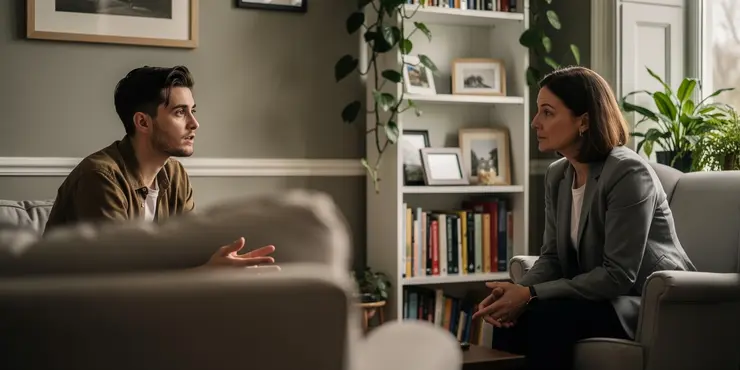
Find Help
More Items From Ergsy search
-
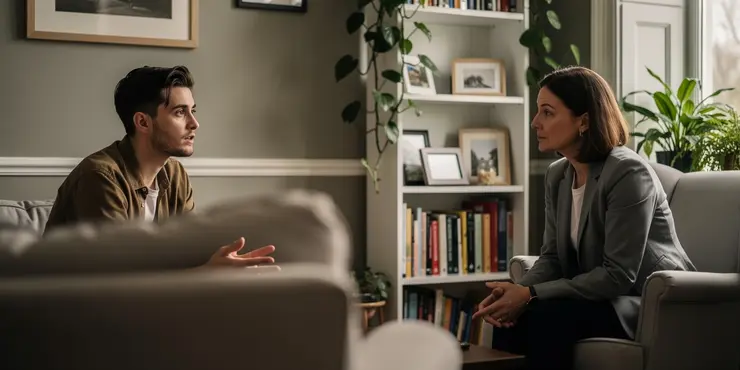
Can therapy help individuals with ADHD?
Relevance: 100%
-
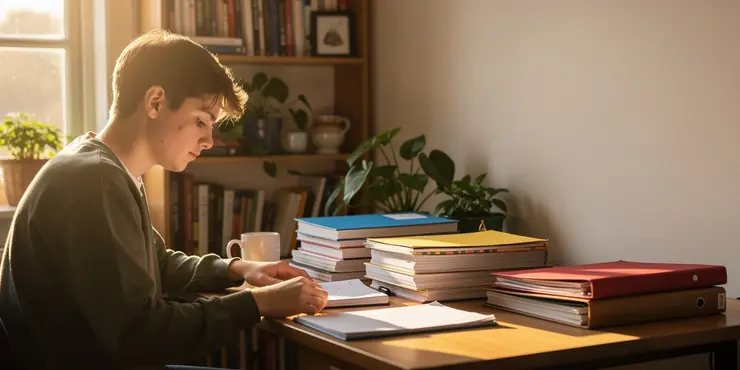
Is there a cure for ADHD?
Relevance: 64%
-
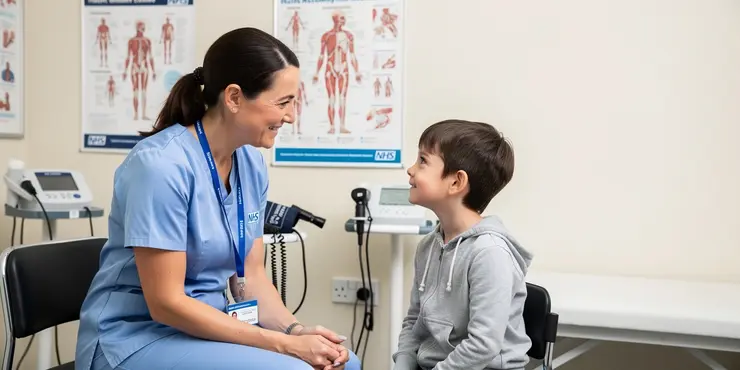
What is ADHD?
Relevance: 63%
-
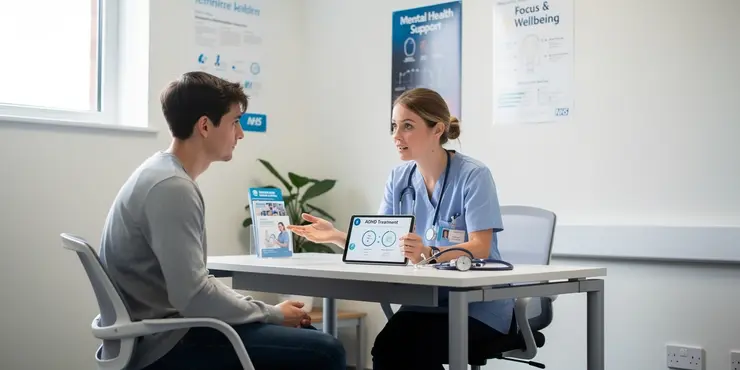
What are common treatments for ADHD?
Relevance: 59%
-
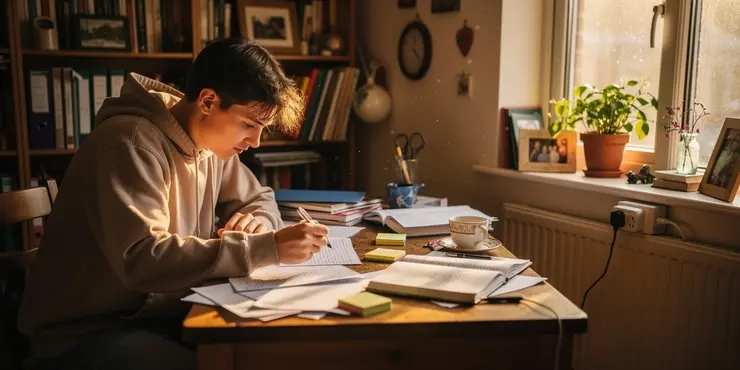
Attention deficit hyperactivity disorder (ADHD) - Living with ADHD
Relevance: 58%
-
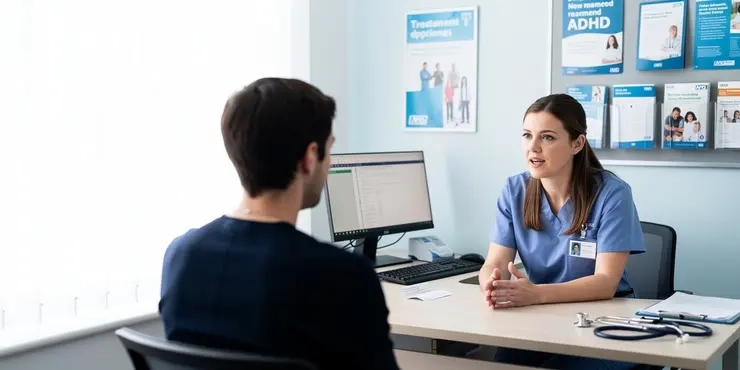
Attention deficit hyperactivity disorder (ADHD) - Treatment
Relevance: 55%
-
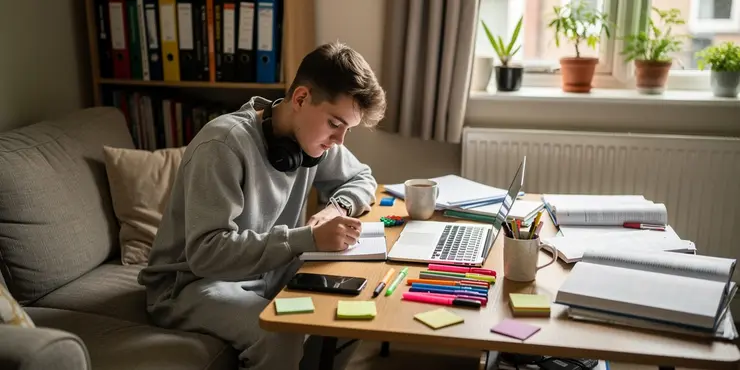
Are there different types of ADHD?
Relevance: 55%
-
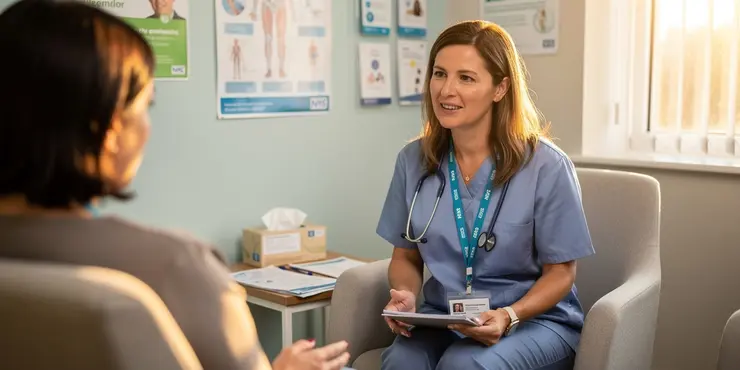
Can adults have ADHD?
Relevance: 55%
-
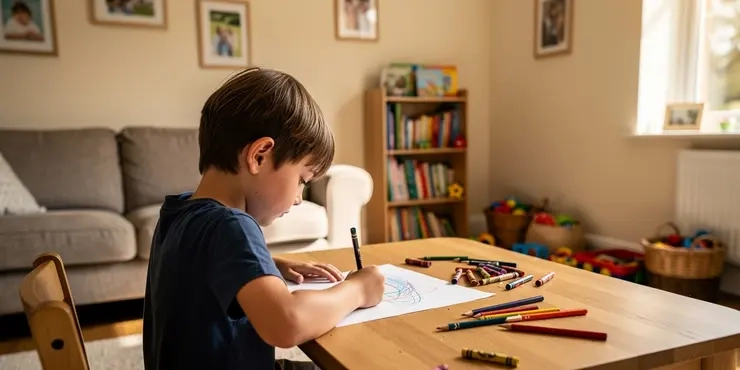
Attention deficit hyperactivity disorder (ADHD) - Introduction
Relevance: 53%
-
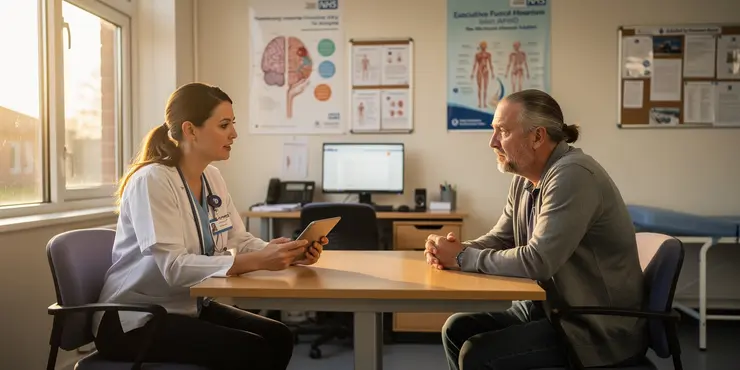
How does ADHD affect executive function?
Relevance: 52%
-

Can lifestyle changes help manage ADHD?
Relevance: 52%
-
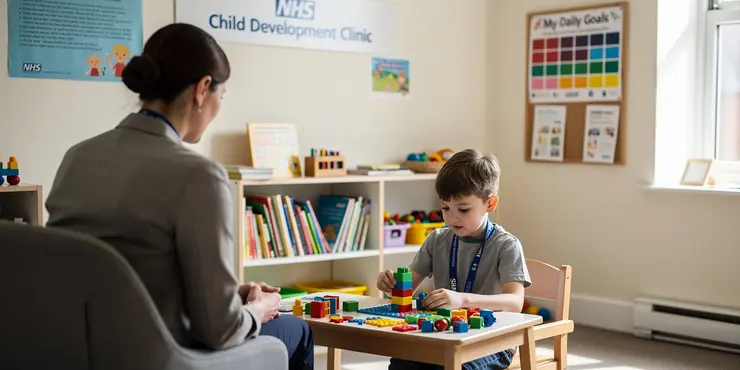
How is ADHD diagnosed?
Relevance: 52%
-
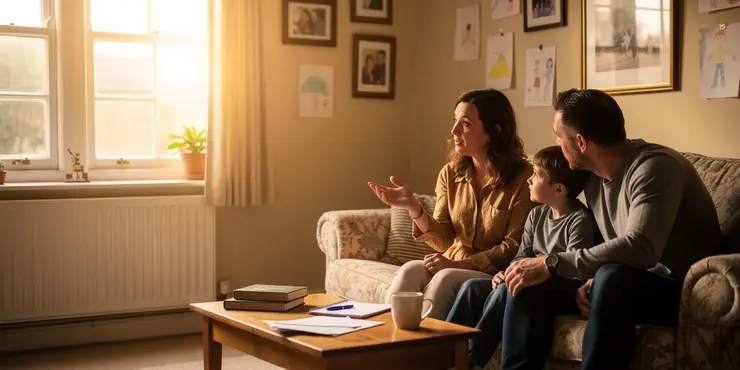
Can ADHD be inherited?
Relevance: 52%
-
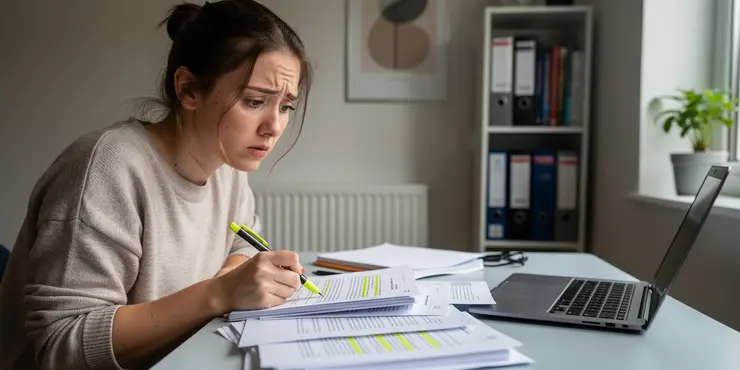
Are there any risks associated with untreated ADHD?
Relevance: 52%
-

What are the main symptoms of ADHD?
Relevance: 52%
-
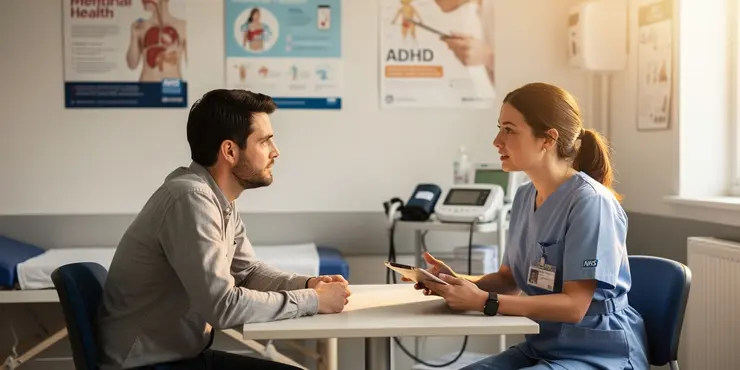
What causes ADHD?
Relevance: 51%
-

Can diet affect ADHD symptoms?
Relevance: 50%
-
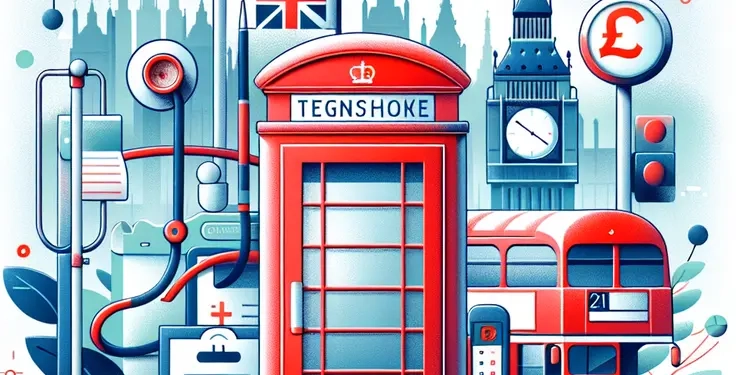
How can I get tested for ADHD?
Relevance: 49%
-

Is ADHD more common in boys or girls?
Relevance: 48%
-
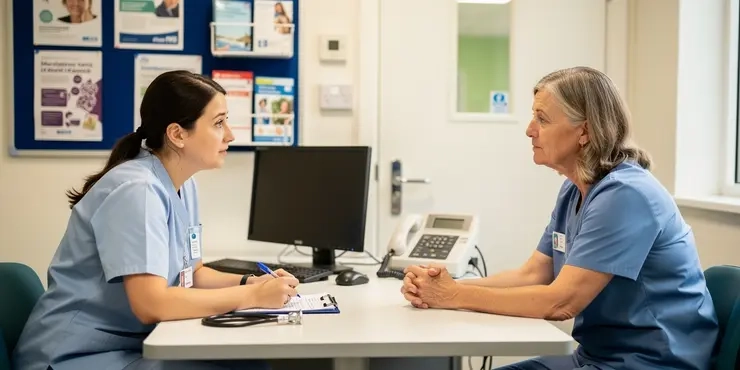
Attention deficit hyperactivity disorder (ADHD) - Diagnosis
Relevance: 47%
-
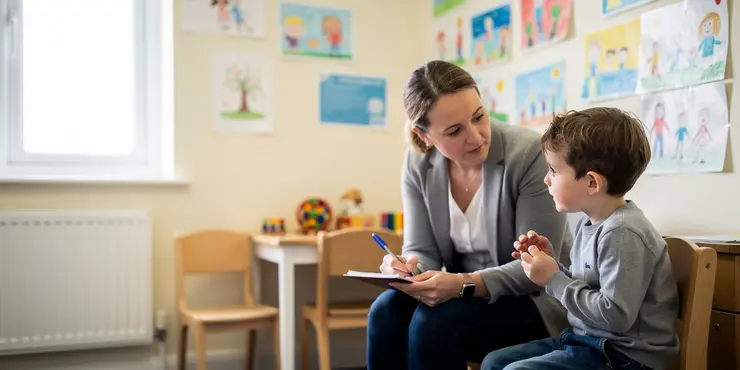
What role does the environment play in ADHD?
Relevance: 46%
-
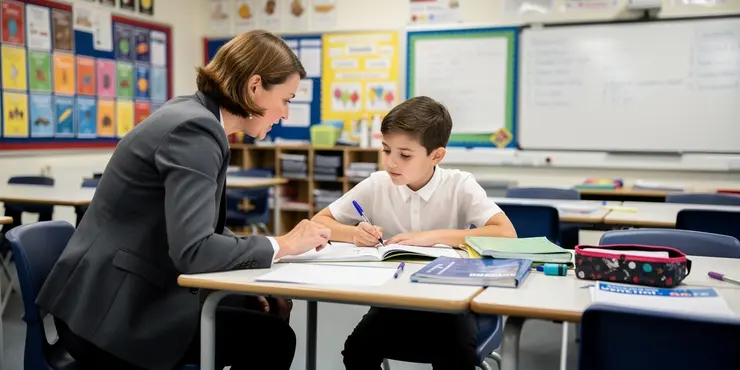
How can teachers support students with ADHD?
Relevance: 43%
-
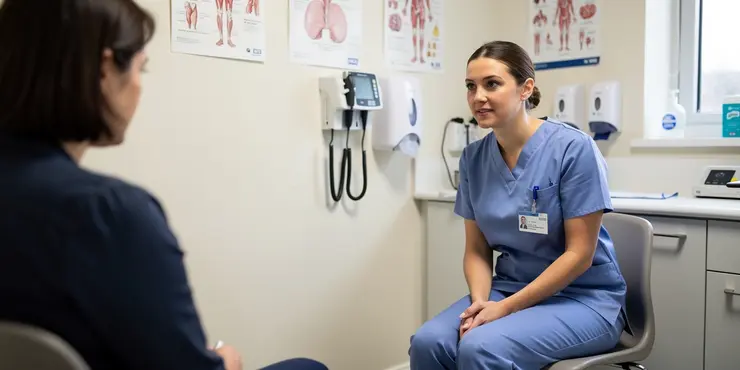
What is ADHD?
Relevance: 42%
-
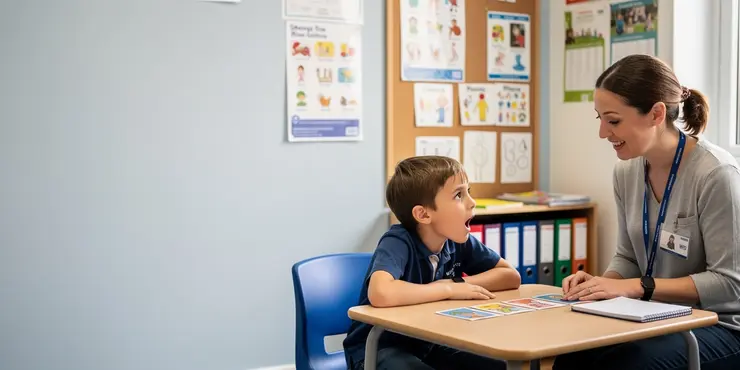
What are some common therapies for autism?
Relevance: 36%
-
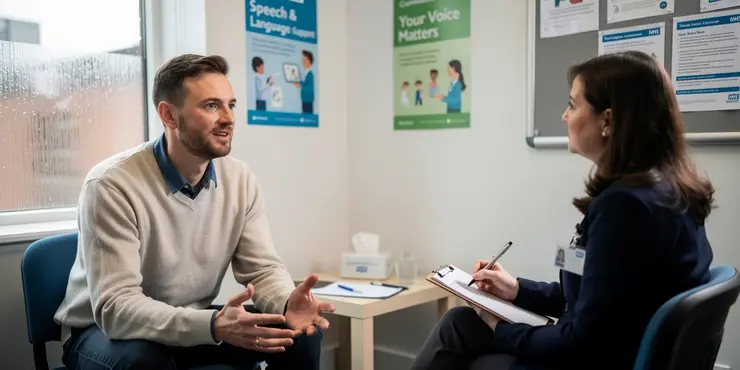
Adam's story on stammering - Therapy
Relevance: 35%
-
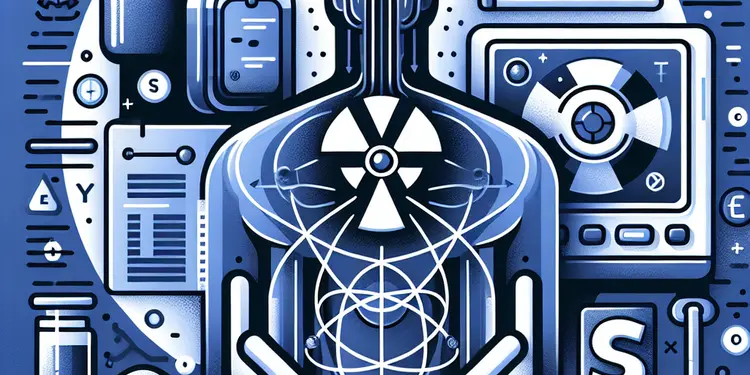
What is radiation therapy?
Relevance: 35%
-
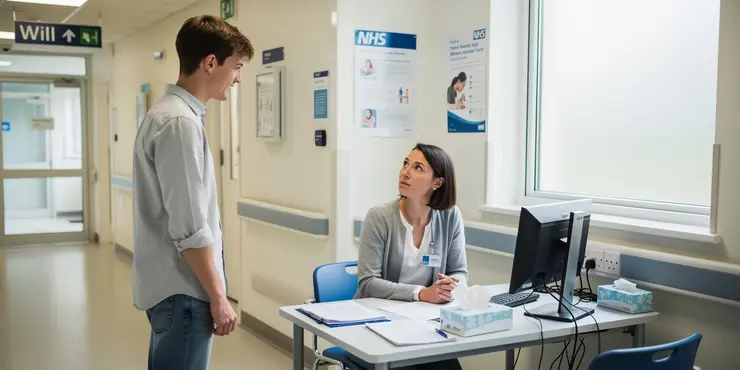
Will's story on having therapy - Stammering
Relevance: 34%
-
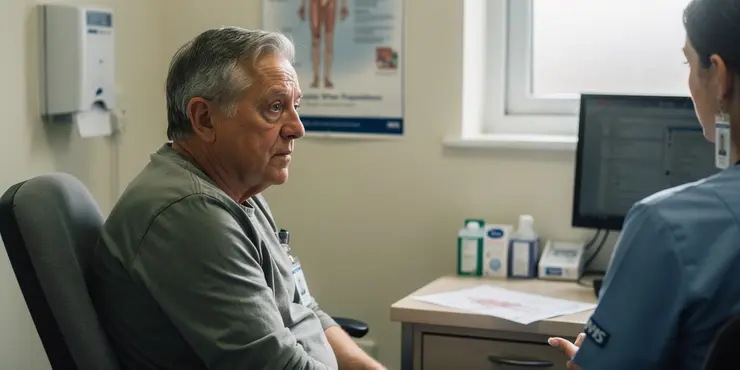
Hormone Therapy for prostate cancer
Relevance: 34%
-
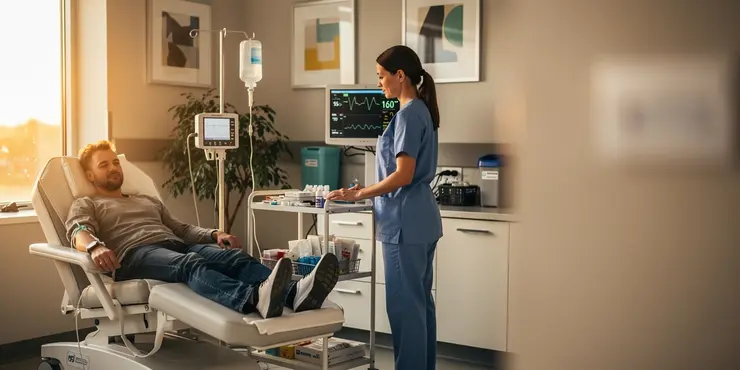
What is ketamine infusion therapy?
Relevance: 34%
-
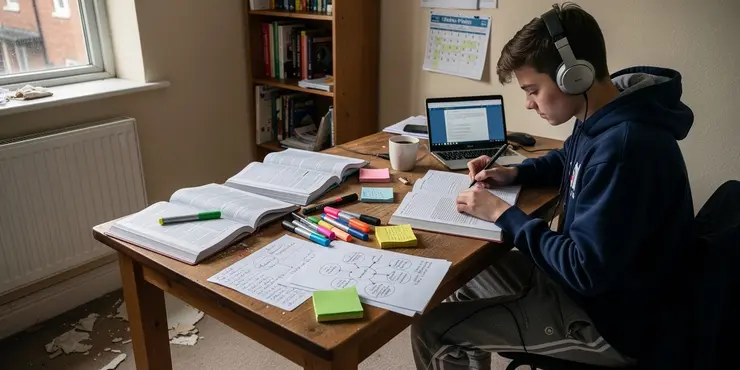
Can ADHD affect academic performance?
Relevance: 33%
-
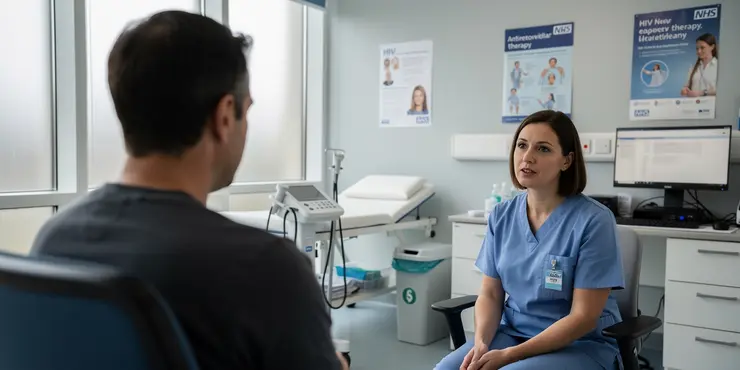
What is antiretroviral therapy (ART)?
Relevance: 33%
-
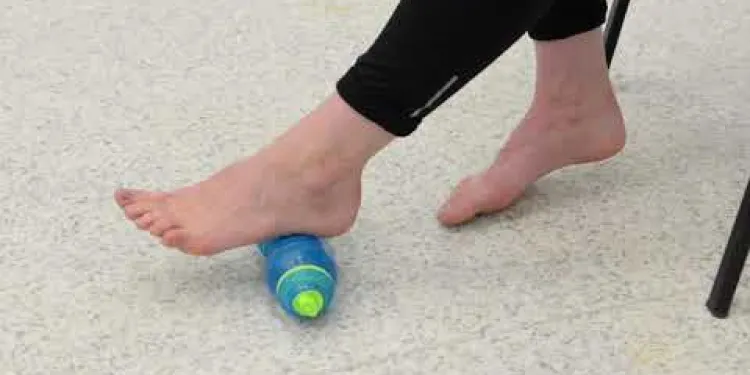
Plantar Fascia Cold Therapy
Relevance: 33%
-
What is the role of therapy in treating eating disorders?
Relevance: 33%
-
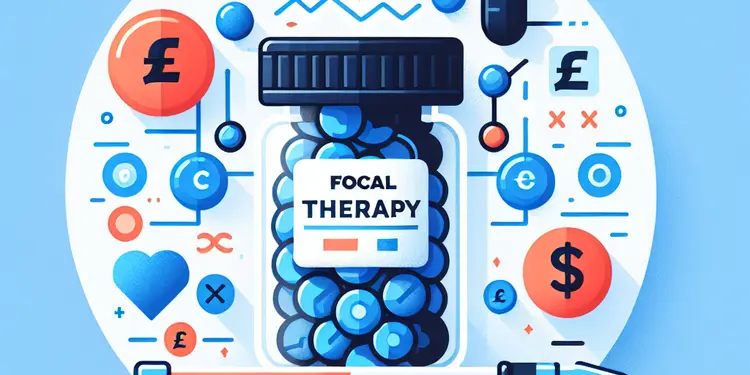
Is focal therapy an option for prostate cancer?
Relevance: 32%
-

Can Music Therapy Be the Key to Reducing Anxiety?
Relevance: 32%
-
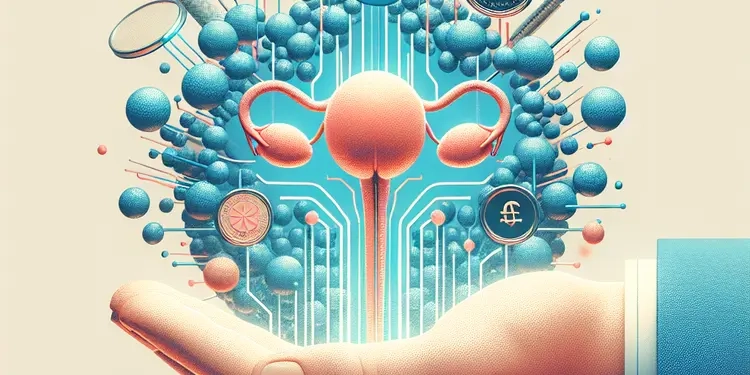
Can prostate cancer be treated with targeted therapy?
Relevance: 31%
-
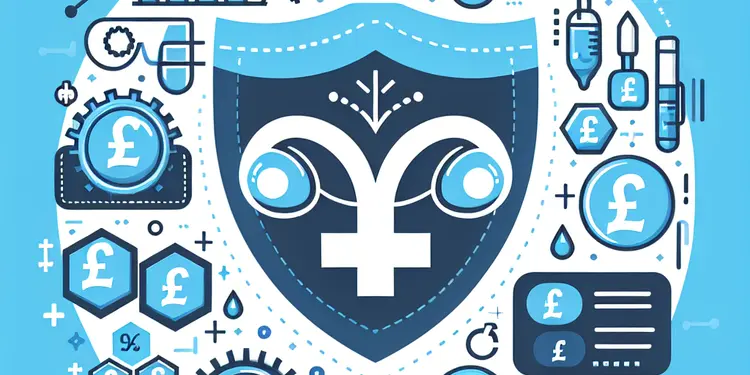
Is hormone replacement therapy safe for menopause masking?
Relevance: 31%
-
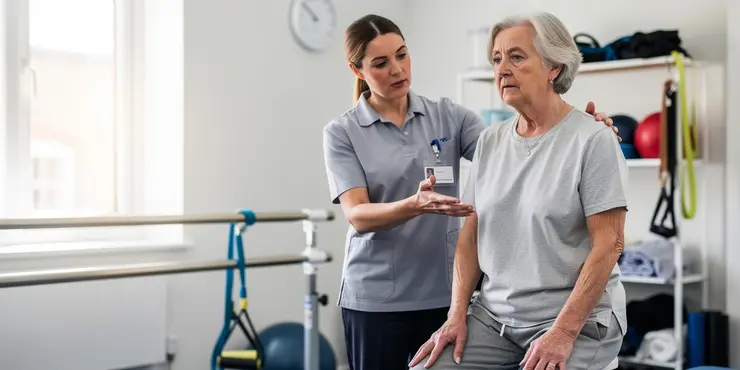
Will I need physical therapy after a hip replacement?
Relevance: 31%
-
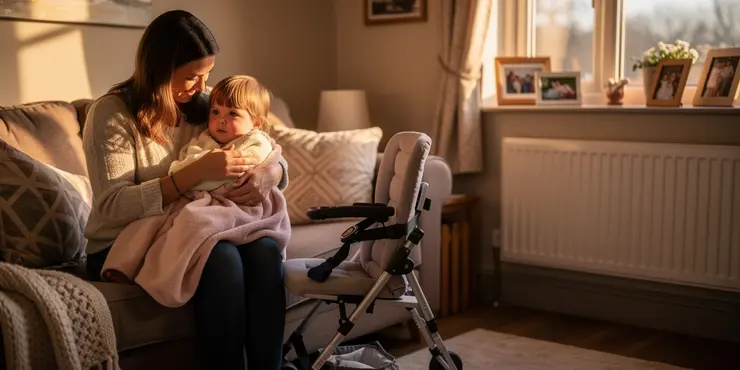
What support is available for families of individuals with PIMD?
Relevance: 30%
-

Can Paillon treatment be used alongside traditional therapies?
Relevance: 29%
The Role of Therapy in Managing ADHD
Attention Deficit Hyperactivity Disorder (ADHD) is a neurodevelopmental disorder that affects individuals of all ages. In the UK, the understanding of ADHD and the different approaches to its management have evolved, with therapy playing a crucial role in supporting those affected. While medication is commonly prescribed to manage symptoms, therapy offers additional benefits that help individuals improve their quality of life.
Understanding ADHD
ADHD is characterised by symptoms including inattention, hyperactivity, and impulsivity. These can lead to challenges in various aspects of life, such as education, employment, and relationships. While the disorder is often diagnosed in childhood, many adults continue to experience symptoms. In the UK, it is estimated that about 1.5 million adults live with ADHD. Understanding effective management strategies is vital in helping them lead fulfilling lives.
Cognitive Behavioural Therapy (CBT) for ADHD
One of the most widely used forms of therapy for ADHD is Cognitive Behavioural Therapy (CBT). CBT focuses on changing negative patterns of thinking and behaviour. For those with ADHD, it helps develop skills to manage time, reduce procrastination, and control impulsive actions. Therapists work with individuals to set achievable goals, encouraging them to apply these strategies in daily life. This type of therapy is particularly beneficial for adults with ADHD, who may use these life skills to improve both personal and professional relationships.
Behavioural Therapy for Children
In children, behavioural therapy can be highly effective. It involves parents and teachers in the treatment process, teaching them strategies to help children develop positive behaviours. Techniques include reward systems to reinforce desired behaviour, creating structured routines, and improving communication skills. In the UK, where ADHD diagnosis in children is on the rise, such interventions are invaluable in mainstream education settings.
Mindfulness and ADHD
Mindfulness practices are gaining support as an alternative therapeutic method for managing ADHD symptoms. The practice involves paying attention to the present moment with openness and curiosity. In ADHD care, mindfulness training can help individuals improve focus, reduce stress, and manage emotions more effectively. For the UK audience, where interest in mental health and well-being is growing, mindfulness represents a promising complement to more traditional therapies.
The Importance of a Multimodal Approach
While therapy can significantly aid in managing ADHD, it is often most effective when combined with other treatments. A multimodal approach, incorporating medication, therapy, lifestyle changes, and educational support, provides a comprehensive treatment plan. In the UK, healthcare professionals often recommend this integrated approach, tailored to the individual's unique challenges and needs.
Therapy can significantly benefit individuals with ADHD by equipping them with tools to manage everyday challenges. For those in the UK, accessing therapy through the National Health Service (NHS) or private healthcare offers important support in improving the quality of life for people with ADHD.
The Role of Therapy in Managing ADHD
ADHD stands for Attention Deficit Hyperactivity Disorder. It is a condition that affects how people think and act. People of all ages can have ADHD. In the UK, many people have learned about ADHD and how to help with it. Therapy is an important part of helping people with ADHD feel better. Medicine can help, but therapy gives even more support to improve life.
Understanding ADHD
ADHD makes it hard to pay attention, stay still, and stop acting on impulse. This can make school, work, and friendships difficult. Many kids get ADHD, but adults can have it too. In the UK, about 1.5 million grown-ups have ADHD. Learning how to manage ADHD is important so people can live happy lives.
Cognitive Behavioural Therapy (CBT) for ADHD
Cognitive Behavioural Therapy, or CBT, is a popular therapy for ADHD. CBT helps people change negative thoughts and actions. For people with ADHD, it teaches skills like managing time and stopping impulsive actions. Therapists set small goals with their patients and help them use these skills every day. Adults with ADHD can improve their relationships and work with these skills.
Behavioural Therapy for Children
For children, behavioural therapy works well. It includes parents and teachers in the treatment. They learn ways to help kids show good behaviour. This can include reward systems, making daily routines, and better communication. In the UK, more children are diagnosed with ADHD, and these methods help in schools.
Mindfulness and ADHD
Mindfulness is another way to help with ADHD symptoms. It means paying close attention to what is happening right now and being curious about it. For ADHD, mindfulness can help with focus, stress, and controlling emotions. Many people in the UK are interested in ways to improve mental health, and mindfulness is a helpful option.
The Importance of a Multimodal Approach
Therapy helps a lot, but it works best with other treatments. A multimodal approach means using medicine, therapy, changes in daily life, and learning support. In the UK, doctors often suggest this to meet each person's needs.
Therapy gives people with ADHD tools to handle everyday problems. In the UK, therapy is available through the National Health Service (NHS) and private healthcare. This support can help people with ADHD have better lives.
Frequently Asked Questions
Can therapy help individuals with ADHD?
Yes, therapy can be very beneficial for individuals with ADHD by providing strategies to manage symptoms and improve functioning.
What types of therapy are effective for ADHD?
Cognitive Behavioral Therapy (CBT), behavioral therapy, and family therapy are commonly used. Coaching and mindfulness may also be beneficial.
Is therapy a substitute for medication in ADHD treatment?
Therapy can complement medication but may not always replace it. A combination of both is often recommended for the best outcomes.
How does Cognitive Behavioral Therapy (CBT) help ADHD?
CBT helps individuals with ADHD develop coping strategies, improve time management, and address negative thoughts that may arise from symptoms.
What is the role of family therapy in ADHD?
Family therapy helps improve communication and support within the family, creating a more structured and understanding home environment.
Can therapy improve organizational skills in people with ADHD?
Yes, therapists can work with individuals to enhance organizational skills, task management, and prioritization strategies.
How does behavioral therapy assist individuals with ADHD?
Behavioral therapy focuses on reinforcing positive behaviors and reducing negative behaviors through structured interventions.
What age group can benefit from ADHD therapy?
Therapy can benefit individuals of all ages with ADHD, including children, adolescents, and adults.
Does therapy for ADHD require parental involvement?
For children and adolescents, parental involvement can be crucial in reinforcing strategies and maintaining a supportive environment.
Can mindfulness techniques be helpful for ADHD?
Yes, mindfulness can help those with ADHD improve focus and reduce impulsivity by promoting awareness of the present moment.
Is group therapy effective for people with ADHD?
Group therapy can provide peer support and allow individuals with ADHD to learn from each other's experiences and strategies.
How long does therapy for ADHD typically last?
The duration of therapy varies depending on individual needs, but some may see improvements within a few months while others may require longer.
Can therapy help with ADHD-related emotional problems?
Yes, therapy can address emotional issues such as low self-esteem, anxiety, and depression that often accompany ADHD.
What can I expect in a therapy session for ADHD?
Sessions often involve discussing challenges, setting goals, and learning strategies to manage and mitigate ADHD symptoms.
How do I know if therapy is working for ADHD?
Improved behavior, better focus, enhanced organizational skills, and a reduction in ADHD symptoms indicate therapy effectiveness.
Are there any risks or side effects of therapy for ADHD?
Therapy generally has minimal risks, though some may experience temporary discomfort when addressing challenges.
How does ADHD coaching differ from traditional therapy?
ADHD coaching focuses on practical solutions and achieving personal goals, while therapy may delve deeper into emotional and behavioral issues.
Can therapy alone be sufficient for some people with ADHD?
Yes, some individuals may manage symptoms effectively through therapy alone, particularly if symptoms are mild.
Is it difficult to find specialized therapists for ADHD?
While therapists with ADHD specialization are available, it might require some research to find one in your area.
Should therapy for ADHD be adjusted over time?
Yes, therapy should be flexible and adjusted over time as an individual's needs and circumstances change.
Can therapy help people with ADHD?
Therapy can help people with ADHD.
Therapy means talking with a trained helper. This helper listens and gives advice.
If you have ADHD, therapy can teach you ways to focus and calm down.
You can learn new skills like:
- Making lists
- Using a timer
- Following steps, one by one
It can also help with feelings. You might learn how to talk about how you feel and get support.
Talking to your family or friends can also help. They can learn how to support you better.
Using tools and apps that help you remember things can be useful too.
Ask a doctor or a therapist if you want to know more about therapy for ADHD.
Yes, talking to a therapist can really help people with ADHD. A therapist can teach them ways to handle their symptoms and feel better.
What therapies help people with ADHD?
Here’s how different therapies can help:
- Talking Therapy: You talk to someone who listens and helps. This can make you feel better.
- Behavior Therapy: This helps you learn good habits and how to make good choices.
- Family Therapy: Your family learns how to support and help you.
- School Support: Teachers can use special ways to help you learn better.
If you feel worried or confused, tell someone you trust. You can also use tools like pictures or stories to help understand things better.
There are different ways to help:
- Talking to a therapist can help. This is called Cognitive Behavioral Therapy (CBT).
- Another way is Behavioral Therapy. This can help too.
- Sometimes, the whole family can talk to a therapist. This is Family Therapy.
- Coaching can give support and help with learning new skills.
- Mindfulness, which helps people relax and focus, might be useful.
Using these methods can make things better for people who need support.
Can talking to a therapist replace taking medicine for ADHD?
Therapy can help when you take medicine, but it might not be enough by itself. Using both therapy and medicine together is usually best.
How can CBT help if you have ADHD?
CBT can be a way to help people with ADHD.
ADHD is when you find it hard to sit still and pay attention.
CBT helps you change your thoughts so you can feel and act better.
Here are some ways CBT can help:
- It teaches you to spot unhelpful thoughts.
- You learn to change bad thoughts to good ones.
- It helps you plan and get tasks done.
- You get tools to stay calm and focused.
Ask an adult to help you find CBT lessons. They can be at school or with a special teacher.
CBT helps people with ADHD learn new ways to handle their feelings and actions. It also helps them plan their time better and deal with bad thoughts they might have because of their symptoms.
How can family therapy help with ADHD?
Family therapy means talking and listening together. It can help people with ADHD. ADHD makes it hard to pay attention. It also makes sitting still tough.
Family therapy can:
- Help family members understand ADHD.
- Teach families how to work together.
- Help everyone feel better.
Here are some tips:
- Talk to a therapist. They can help families learn and talk.
- Use charts to show plans and rules at home.
- Set quiet times for everyone to relax.
With help, families can support each other better!
Family therapy helps people in a family talk to each other better. It makes the home a nicer place where everyone feels supported and understood.
Can therapy help people with ADHD get better at organizing?
People with ADHD can find it hard to organize their things and time.
Therapy can teach ways to get better at this.
Therapists can show how to make lists and plans.
Using reminders like alarms or charts can also help.
Practice with a friend or family member can be useful too.
Yes, therapists can help people get better at organizing things, handling tasks, and deciding what to do first.
How can behavioral therapy help people with ADHD?
Behavioral therapy can help people with ADHD in a few ways:
- Learning new skills: It teaches ways to focus and stay organized.
- Managing feelings: It helps control feelings of anger or frustration.
- Making good choices: It guides in choosing how to act in different situations.
- Support from others: Talking to a therapist can be a big help.
If you have ADHD, here are some tips that might help:
- Use a planner or calendar: Write down important tasks or events.
- Break tasks into steps: Do small parts of a job one at a time.
- Take breaks: Rest your mind and body after working.
- Ask for help: It's okay to get help from family, friends, or teachers.
These tools and ideas can make life with ADHD a bit easier!
Behavioral therapy helps people by encouraging good behaviors and reducing bad ones through special activities and plans.
Who can get help from ADHD therapy?
ADHD therapy can help kids, teenagers, and adults. If you have ADHD, therapy can teach you things and help you feel better. People of all ages can go to therapy!
Here are some things that might help:
- Talk to a friendly doctor or therapist.
- Use a planner to keep track of your tasks.
- Try relaxing exercises like deep breathing.
Therapy can help everyone with ADHD. It helps kids, teenagers, and grown-ups.
Do parents need to help with ADHD therapy?
Parents can help kids and teenagers. It is important for parents to be involved. They can use strategies at home and make sure kids feel supported.
Can mindfulness be good for ADHD?
Mindfulness is when you pay attention to what you are doing right now. It can help people with ADHD to feel calm and focus better. Here are some ways to try mindfulness: - **Deep Breathing**: Take slow, deep breaths. This can help you feel calm. - **Listening to Sounds**: Close your eyes and listen to the sounds around you. - **Feeling Objects**: Hold something and pay attention to how it feels. Ask a grown-up to help you learn more about mindfulness. They can find videos or apps that make it fun and easy.Yes, mindfulness can help people with ADHD. It can make focusing easier and help them be less impulsive. Mindfulness means paying attention to what is happening right now.
Does group therapy help people with ADHD?
People with ADHD might wonder if talking in a group can help. In group therapy, people talk and share feelings with others. It can be good for learning from each other. You can find new ways to think or feel better.
Helpful tools for this are:
- Writing down what you learn
- Using pictures or drawings
- Talking about how you feel
Group therapy might not be the same for everyone. It's good to try different things to see what helps you best!
Group therapy is when people come together to help each other. In this group, people with ADHD can share their stories and ways to feel better. They can learn from each other and feel supported.
How long do people see a doctor for ADHD help?
People with ADHD might need help from a doctor. The help can last for different times. Some people see the doctor for a short time. Others need more time. It depends on the person's needs. If you have questions, ask a doctor. They can help you understand.
Using pictures or talking to a trusted adult can also help. If reading is hard, try using audio tools to listen to the information.
How long therapy takes can be different for each person. Some people might feel better after a few months. Others might need more time.
Can talking to a therapist help with ADHD feelings?
People with ADHD might have strong feelings that are hard to handle. Talking to a therapist can help. A therapist is someone you can talk to about your feelings and problems. They listen and give advice.
If you have ADHD and big feelings, a therapist can teach you ways to feel better. These could be special tricks or activities. You can also learn how to talk about your feelings.
Some helpful tools are pictures or stories that show feelings. You can use them to understand what you're feeling.
Talk to an adult you trust if you want to see a therapist. They can help you find one.
Yes, therapy can help with feelings like low self-esteem, anxiety, and depression. These feelings often come with ADHD.
What happens in a therapy session for ADHD?
When you go to therapy for ADHD, you will talk with a therapist. The therapist is there to help you. They will listen to your thoughts and feelings.
In the session, you might do fun activities. These activities help you learn new skills. You will practice things that make it easier to focus and stay calm.
The therapist may give you tips and tricks. These can help you at school or home. You can ask questions if you do not understand. The therapist is there to support you.
Some tools that can help include:
- Using a planner to keep track of things.
- Setting small goals to make big tasks easier.
- Taking breaks when you are feeling tired or upset.
Meetings often include talking about problems, making plans, and learning ways to handle and reduce ADHD signs.
How can I tell if therapy is helping my ADHD?
Therapy can help people who have ADHD. Here are some signs that therapy might be working:
- You feel better and happier.
- You can focus more and do things on time.
- You are calmer and less angry.
- You get along better with friends and family.
It's important to talk to your therapist about how you feel.
If you find it hard to talk, you can try using pictures or writing in a notebook.
When therapy works, it helps you behave better, concentrate more, and get better at keeping things in order. It also helps with ADHD symptoms.
Can therapy for ADHD be risky or have side effects?
Therapy helps many people with ADHD. Sometimes therapy might not work as planned. Some things to remember:
- Talk to your doctor: They can help find the best therapy for you.
- Tell someone if you feel upset: If therapy makes you feel sad or stressed, let someone know.
- Use support tools: Things like a planner or visual aids can help.
Ask for help if you need it. Therapy is there to make things better for you.
Going to therapy is usually safe. Sometimes, talking about tough things might feel hard for a little while.
What is different between ADHD coaching and regular therapy?
ADHD coaching helps you find simple ways to do things and reach your goals. Therapy looks more at feelings and behaviors.
Can talking to a therapist help people with ADHD?
Some people with ADHD can feel better by talking to a therapist. This is called "therapy." Not everyone with ADHD is the same, so therapy helps some people a lot. Others might need medicine too.
If you or someone you know has ADHD, it is important to get help. A doctor or therapist can say what is best.
Here are some tools that might help:
- Talking therapy: Talk to a trained person about how you feel.
- Art or music: Expressing yourself with art or music.
- Relaxing exercises: Deep breathing or yoga can help some people feel calm.
Yes, some people can feel better with just therapy, especially if their problems are not too big.
Is it hard to find therapists who help with ADHD?
There are special therapists who help people with ADHD. You might need to look around to find one near you.
Do we need to change ADHD treatment over time?
People with ADHD sometimes need different help as they get older. This is because their needs can change.
It is important to talk to doctors and therapists. They can help decide if changes are needed.
Using tools like reminders, calendars, and timers can help manage ADHD better.
Always ask for help if you are unsure. It's okay to need support.
Yes, therapy can change over time to help you better. If your life or needs change, therapy can change too.
Useful Links
This website offers general information and is not a substitute for professional advice.
Always seek guidance from qualified professionals.
If you have any medical concerns or need urgent help, contact a healthcare professional or emergency services immediately.
Some of this content was generated with AI assistance. We’ve done our best to keep it accurate, helpful, and human-friendly.
- Ergsy carfully checks the information in the videos we provide here.
- Videos shown by Youtube after a video has completed, have NOT been reviewed by ERGSY.
- To view, click the arrow in centre of video.
- Most of the videos you find here will have subtitles and/or closed captions available.
- You may need to turn these on, and choose your preferred language.
- Go to the video you'd like to watch.
- If closed captions (CC) are available, settings will be visible on the bottom right of the video player.
- To turn on Captions, click settings .
- To turn off Captions, click settings again.
More Items From Ergsy search
-

Can therapy help individuals with ADHD?
Relevance: 100%
-

Is there a cure for ADHD?
Relevance: 64%
-

What is ADHD?
Relevance: 63%
-

What are common treatments for ADHD?
Relevance: 59%
-

Attention deficit hyperactivity disorder (ADHD) - Living with ADHD
Relevance: 58%
-

Attention deficit hyperactivity disorder (ADHD) - Treatment
Relevance: 55%
-

Are there different types of ADHD?
Relevance: 55%
-

Can adults have ADHD?
Relevance: 55%
-

Attention deficit hyperactivity disorder (ADHD) - Introduction
Relevance: 53%
-

How does ADHD affect executive function?
Relevance: 52%
-

Can lifestyle changes help manage ADHD?
Relevance: 52%
-

How is ADHD diagnosed?
Relevance: 52%
-

Can ADHD be inherited?
Relevance: 52%
-

Are there any risks associated with untreated ADHD?
Relevance: 52%
-

What are the main symptoms of ADHD?
Relevance: 52%
-

What causes ADHD?
Relevance: 51%
-

Can diet affect ADHD symptoms?
Relevance: 50%
-

How can I get tested for ADHD?
Relevance: 49%
-

Is ADHD more common in boys or girls?
Relevance: 48%
-

Attention deficit hyperactivity disorder (ADHD) - Diagnosis
Relevance: 47%
-

What role does the environment play in ADHD?
Relevance: 46%
-

How can teachers support students with ADHD?
Relevance: 43%
-

What is ADHD?
Relevance: 42%
-

What are some common therapies for autism?
Relevance: 36%
-

Adam's story on stammering - Therapy
Relevance: 35%
-

What is radiation therapy?
Relevance: 35%
-

Will's story on having therapy - Stammering
Relevance: 34%
-

Hormone Therapy for prostate cancer
Relevance: 34%
-

What is ketamine infusion therapy?
Relevance: 34%
-

Can ADHD affect academic performance?
Relevance: 33%
-

What is antiretroviral therapy (ART)?
Relevance: 33%
-

Plantar Fascia Cold Therapy
Relevance: 33%
-
What is the role of therapy in treating eating disorders?
Relevance: 33%
-

Is focal therapy an option for prostate cancer?
Relevance: 32%
-

Can Music Therapy Be the Key to Reducing Anxiety?
Relevance: 32%
-

Can prostate cancer be treated with targeted therapy?
Relevance: 31%
-

Is hormone replacement therapy safe for menopause masking?
Relevance: 31%
-

Will I need physical therapy after a hip replacement?
Relevance: 31%
-

What support is available for families of individuals with PIMD?
Relevance: 30%
-

Can Paillon treatment be used alongside traditional therapies?
Relevance: 29%


